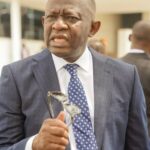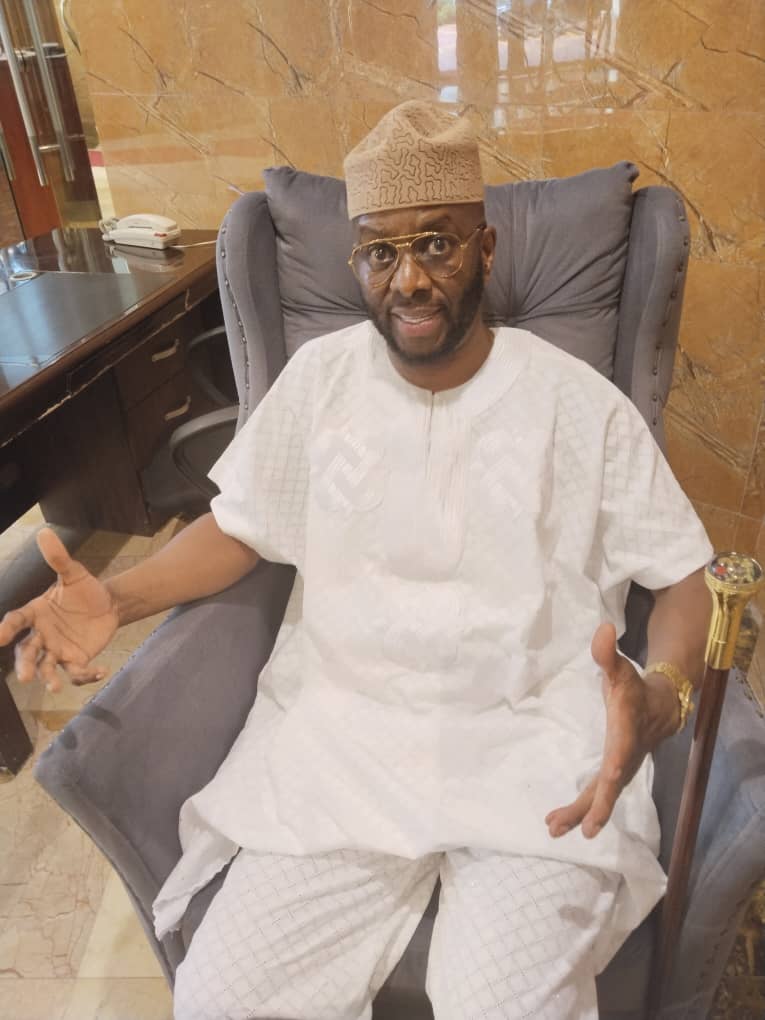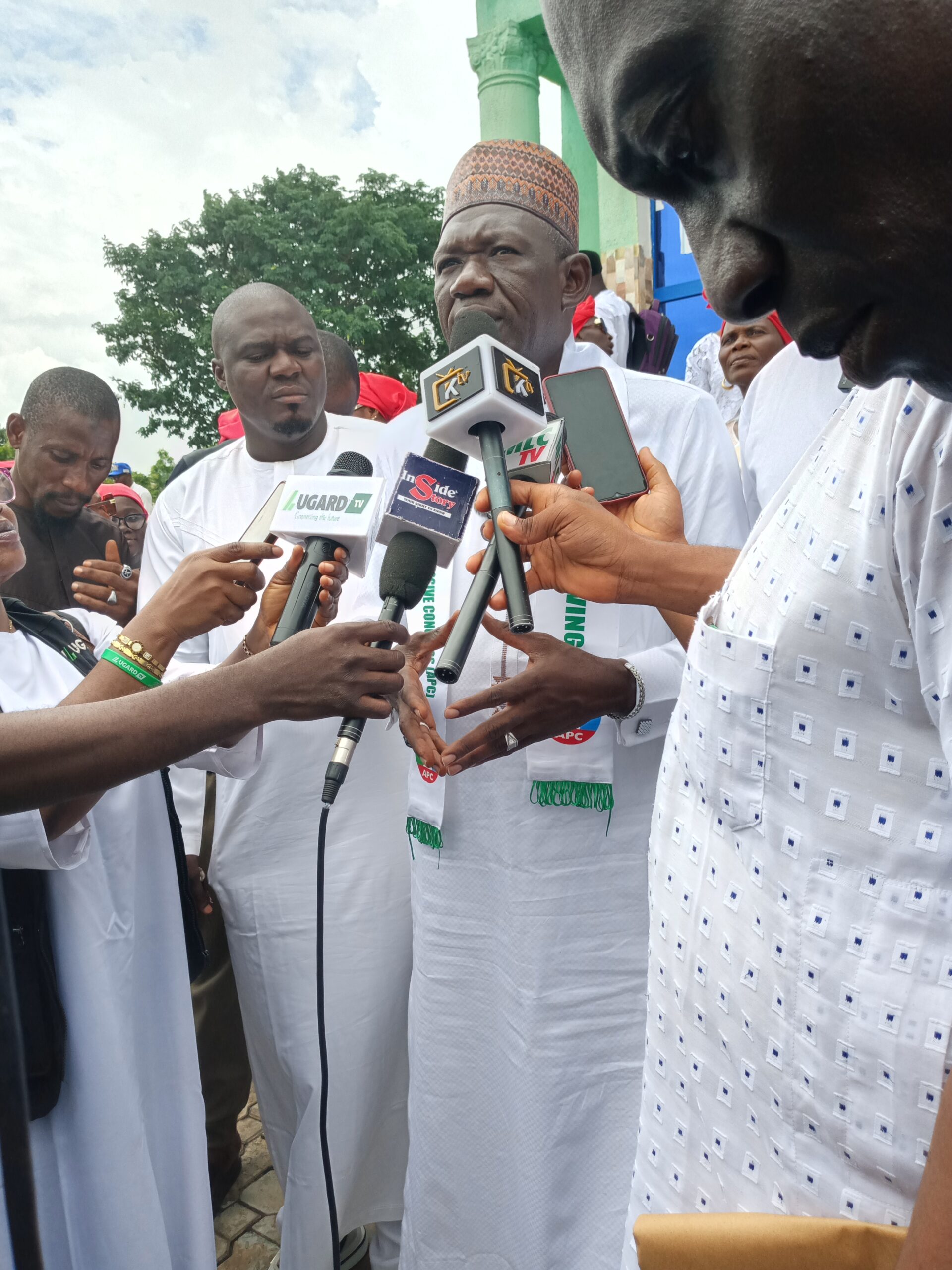
By TONY AKOWE
Mixed reactions have trailed the endorsement of direct primaries by the Senate, which involves the election of candidates for political parties by all registered, card-carrying members. Many believe the process will limit the influence of godfathers on the shadow polls and foster popular participation. TONY AKOWE reports
When the Adams Oshiomhole-led National Working Committee (NWC) of the All Progressives Congress (APC) decided to use the direct primary for electing candidates during the 2019 general elections, not many clapped for him. While the option was openly adopted in some states, it created serious problems for the party in some other states; leading to the party losing elections in such states. But, the beauty inherent in the process was the decision to use the direct option in conducting its presidential primary which however required a national convention to ratify the outcome under the watchful eyes of the Independent National Electoral Commission (INEC). Hitherto, political parties used the indirect option to nominate their candidates. But, the indirect primary has been widely criticised as one that does not reflect the wishes of the people or members of the parties.
Although party primary is entirely an internal affair of a political party, Nigerians have long sought for a free, fair and credible primaries to select candidates. There is the belief that the leadership problem in the country is largely due to the faulty selection process which has thrown up leaders that have practically lost touch with their people.
During its consideration of the report of its electoral committee, the House of Representatives resolved to approve the direct primary option after an amendment proposed by the Speaker. While the indirect primary option which many parties have used over the years allows members of a party to elect delegates who are usually leaders and members of the executives at the ward, local government area and state levels, to, in turn, elect the party’s candidate(s) at a congress or convention, the direct primary option allows the entire party members to participate in the election/selection of the party’s candidate for any election.
In calling for the direct primary option, Gbajabiamilla said: “I will seek an amendment to Section 87. Section 87 provides for either indirect or direct primary. In the true ethos of democracy, I would like to amend Section 87 to delete indirect and make direct primary mandatory.” The Speaker had to speak from the floor of the House rather than his exalted seat because the Deputy Speaker presides over consideration of bills and reports in the committee of the whole. His position was seconded by the House Leader, Alhassan Ado-Doguwa. The Deputy Speaker, Ahmed Wase, who presided over the clause-by-clause consideration of the bill at the Committee of the Whole, put the prayer to voice vote and the amendment was unanimously adopted by the lawmakers. The position was adopted by the House, while the Senate initially opposed the idea, but agreed to it at the conference committee level. Section 87 (1 &2) of the Electoral Act 2010 provided that “(1) A political party seeking to nominate candidates for elections under this Act shall hold primaries for aspirants to all elective positions. The procedure for the nomination of candidates by political party for the various elective positions shall be by direct or indirect primaries.” It also provides guidelines for the parties in the conduct of their primaries.
But, the House Committee retained the provision with a slight amendment to read: “A political party seeking to nominate candidates for elections under this act shall hold direct or indirect primaries for aspirants to all elective positions, which may be monitored by the commission. The procedure for the nomination of candidates by political parties for the various elective positions shall be by direct or indirect primaries.”
The committee explained that “this amendment guarantees an all-inclusive primary process and system of all political parties and provides clear statutory primary roadmaps to forestall systemic control of parties’ primaries by a select few in any party. It sets limits on fees/financial expenses payable by aspirants seeking their parties’ nominations to contest elective public offices. It is intended to limit internal party crises arising from exclusion of candidates or manipulation of primary processes by a few.”
Spokesman of the House of Representatives, Benjamin Kalu tried to justify the position of the House. He said the lawmaking chamber was conscious of the fact that the time has come to have a credible mode of primary and, so, decided to restrict the mode of primary to the direct option. The decision was later adopted by both chambers in a conference committee. Kalu said: “Nigeria’s nascent democracy has matured in these 22 years of the Fourth Republic. Without a doubt, the people are wiser, more informed, more engaged and yearn for a new political order that empowers them to reject unpopular or incompetent political aspirants. A popular yeaning of Nigerians in the electoral reform process was the call to discard the delegate based primary election method in favour of direct primary. Following extensive stakeholders’ consultations and engagement on electoral reforms, it is clear to the leadership of the House that the delegate based primary election method is not only unpopular, but is inefficient in producing credible candidates.”
Kalu argued that the indirect mode of primary which has been in use since the return to civil rule in 1999 and that it enabled godfatherism and corruption. He added: “It has created a system where unpopular political candidates rely on buying of delegates to vote for them or their cronies at the party primary. This is antithetical to the aim of a diligent primary election which is to choose credible candidates that would most likely be acceptable to the electorates.”
Conscious of the fact that the provision in the original recommendation of the House Committee on Electoral Matters recommended the use of both direct and indirect primary to select candidates for elections, he recalled the position of the Speaker during the clause-by-clause consideration of the Electoral Act. He said: “Femi Gbajabiamila’s contribution to the amendment of clause 87 of the Electoral Act is reflective of the agitations of the people. The House wishes to remind all political players that direct primary is in the best interest of our democratic advancement as a nation. The conduct of party elections by direct primary remains the most transparent mode of nominating a candidate in any election. It marks a true return of power to the people. It is more participatory creating a level-playing ground for all aspirants and allowing the emergence of popular candidates.
“The direct primary will increase the participation of women and youth in the political process. It will help check godfatherism, enhance intra-party democracy and reduce the commercialisation of elections in Nigeria. The House is pleased that the Senate has agreed with its position on direct primary, as well as the electronic transmission of election results. The harmonisation of the National Assembly on these issues is a clear indication of the maturing of our democracy. The House remains committed to the improvement of our electoral process and expresses confidence that the Electoral Acts (Amendment) bill will be expeditiously assented upon transmission to the President.”
A member of the House, Jimi Benson, said the restriction was based on democracy and freedom to participate and inclusiveness. He said: “The Speaker, in his wisdom, during the consideration of the report, brought the motion seeking to ensure that all parties use a direct mode of primary to elect candidates for the various political positions. I think it is a step in the right direction. If you remember the freest and the fairest election in Nigeria, people talk about the June 12 (1993 presidential election). June 12 was not about the victory, it was about how the candidate (of the defunct Social Democratic Party) emerged, which was (the late Chief) MKO Abiola. People queued behind their favourite candidate in different wards to elect him as the party’s flag bearer. That is what the Speaker, in his wisdom, is trying to bring back to Nigeria. He is trying to bring back inclusiveness, so that godfatherism, favouritism and unpopular candidates can step out.”
However, Anthony Sani, former Secretary-General of the pan–northern socio-political organisation, Arewa Consultative Forum (ACF), agrees. He said: “The endorsement of direct primary would improve internal democracy in political parties by allowing all party members to participate in the choice of party candidates for elections. That way, party members would own the primary and the ensuing results. This is because it is hard for moneybags to bribe all party members in the way they bribe delegates during indirect primary. That is to say that direct primary will reduce incidence of parallel primaries and reduce kleptocracy and plutocracy.”
But, Senator Shehu Sani, who represented Kaduna Central between 2015 and 2019, is not convinced that the adoption of the direct primary option would eliminate all the problems associated with electing candidates for political parties. This, he said, is because the direct primary has its positive and negative sides. He said: “The positive side of it is that it is popular, it is cheaper and the most credible way of producing credible candidates. The negative side is that Nigeria political parties do not have a database of their members. Secondly, there are security challenges in direct primary because almost everybody will come and line up. This is going to be done at the ward offices of the parties and we don’t have the security apparatus that will be able to protect such a process. It could be chaotic since almost everybody is going to come and line up, even non-members of the parties can be mobilised to join the line.
“Another aspect of it is that any figure can be written as results from direct primary. You will remember that when President Buhari opted for direct primary, the claim by the ruling party was that about 30 million members voted for him. The question then was, where are those people? Only 18 million people voted for him during the general election. But, anybody who does not have enough money to give to delegates opts for direct primary, but it is subject to a lot of abuse. It is equivalent to the general election; the only difference is that it is conducted by political parties.”
Sani said the decision to adopt direct primary by the National Assembly may not be unconnected with the struggle for relevance by the lawmakers, especially in their states. The former lawmaker who lost out to power play in Kaduna added: “The reason behind the adoption of direct primary by the Senate is that many of them have lost favour with their governors and the governors have conducted congresses without their supporters. As such, the only way for their political survival is through direct primary. In 2019, many of them were beneficiaries of indirect primary. But, now that the governors have decided to change many of them, the idea of direct primary as the only legal and credible process comes into play. So, that law made by the National Assembly is informed by the crisis they are having in their states.”
A member of the Arewa Roundtable, a socio-political group working to fashion out an acceptable leadership option for the North devoid of rancour, Matamaki Tom Maiyashi said what the country needs at this point in time is a leadership recruitment system that will throw up true leaders for the country. He believes that the leadership drive in the country has been on the downward trend since 1999, leading to a series of agitations by Nigerians. He warned that the direct primary must be made to work if agitations in the country must stop. He said: “The provisions hitherto were based on the delegate system. If you look at it, the delegate system is more convenient because it reduces the cumbersomeness of throwing up those to be elected at all levels.
“But, that type of law can only be made for a sane society. We are not a sane society. Everything that needs to be judged is judged through rationalistic decency and our society is not for that. Public officers are elected and when they are elected, they are sworn in on oath. If you are a Muslim, you hold the holy Quran and if you are a Christian, you hold the Holy Bible and that is a very serious business. You swear to do justice to all without discrimination. But, as soon as they are through with the oath, they go and do something completely different. If you are a governor, for example, you are elected to take charge of a constituency described by the constitution as a state. But, as soon as he settles down, he completely appropriates all the resources of the state for himself, does whatever he wants and even controls the State House of Assembly. So, we are really not a sane society. The agitations you are seeing now have come about as a result of the distrust and disgust of Nigerians with the way public officers emerge.
“So, it is a reaction to a specific situation. With the delegate system, a presidential or governorship candidate can decide who qualifies to be a delegate. The delegate could emerge from his local government and he will change the delegate list until he is satisfied that he now has the people that will vote him into power. There is no way people will not react to this type of situation. This type of situation is going to cause serious chaos in this country. Our political culture has been degenerating and you can see this from the quality of leaders we are having. From 1999 till date, the quality has been degenerating. In everything, the aspiration of the people has been completely compromised by the system. So, whether we are going to do an open delegate system or not, what the country must face is the integrity and the accountability processes that will make sure that credible candidates emerge. Unless we do that, this direct primary option may fail, and Nigerians are going to react. So, we must look for a credible leadership recruitment system.”
A member of the Peoples’ Democratic Party (PDP) in Kaduna State, Mordecai Ibrahim, believes that the National Assembly deserves commendation for the giant step it has taken to make the people take back their parties. He said: “If there is anything the National Assembly has ever done deserving of commendation, it is this aspect of the Electoral Law’s amendment which has now provided for direct primary elections for political parties. This provision of the law will go a long way to ensure the people take back the proper ownership of the political parties. Card-carrying members of any given political party can now decide who will be their party’s flag bearer and this will translate into greater chances for transparent electoral victory, which will in turn be seen and accepted as credible.”
Ibrahim added: “When a candidate emerges through direct primary to contest election against a candidate that was produced through indirect or delegate election, chances are that such a candidate will always win the general election. He will win because it is the majority of party faithful that chose their flag bearer. Voting for such a candidate during the general election will be a smooth exercise because he is already liked or loved by the majority of the party people who also in most cases are the majority in the state/Federal Constituency, local government or senatorial district. Direct primary election is a giant step at handing over the political party to people.
“By the time direct primary elections are combined with electronic voting and e-transmission of election results, Nigeria will be obviously heading towards an egalitarian political society. I know that fraudulent politicians such as ballot box snatchers and other forms of election riggers will never be comfortable with direct primary elections and electronic transmission of results. But, if democracy is truly a government of the people by the people and for the people, then every honest and God-fearing practicing politician who believes in transparent politicking and election should have no qualms with these innovations introduced by the National Assembly.”
Interestingly, there is general consensus among Nigerians that the direct primary option is the best way, as it remains the most transparent mode of nominating a candidate in any election and it also allows mass participation of party members. But, the truth remains that the new law will no doubt throw up a constitutional crisis within the political parties whose constitution currently provides for both direct, indirect and in some cases, consensus option.
The National Coordinator of the Progressives’ Patriot Initiative, Athanasius Okon, believes that the concept of direct primary is not only in the constitution, but a convention driven by practical democracy, which is people-friendly. He said: “It is premised on the principle of transparency, fairness and justice! It makes the template of selection more acceptable, applicable and enduring. It makes both the poor and the rich test their acceptability amongst the electorate in a way that the outcome becomes obvious, more objective and justice driven. The system is rancor-free and less acrimonious, therefore easily facilitates the majority position on who is more popular and indeed acceptable in the context of choice amongst aspirants.”
Okon argued that the system will promote internal party democracy. He said: “Research on this issue has proven that the majority Nigerian electorate, as a result of accumulated experience in the polity over the years, especially since 1999, is that only a few privileged ones are always involved in almost all the areas of making choices, selections and appointment of the people’s representatives, etc. At the political party level of administration, it is equally the same scenario; appointment of elitist surrogates and cronies to offices, instead of democratic process, which encourages people’s contribution and participation. Another aspect of great benefits for political parties is the relative peace and comfort in choosing representatives. Since political parties can only work well, for the achievement of their objectives, especially governance, it is indeed possible through the use of popular democratic process, which usually involves the recruitment of a large population of the masses. Therefore, it is their responsibility to allow the same people to decide on who to represent them; not imposition occasioned by a few.
“The system is also healthy, as crises and unnecessary litigation become less. Therefore, it is cost effective among other things. The system is equally faster in reaching final decisions in regard to representatives’ recruitment. Healthy, as all are seen as stakeholders. Therefore, final results are for all, not from a few. Representatives also see themselves as the choice of the people, having been selected from amongst the majority, not a few.”
On how the option may affect the political parties, he said: “Since the norm is in support of democratic process in running political parties, including selection of candidates for elections, the only factor that is widely acceptable for political parties’ independence, is when they are people-friendly. Once the majority of people are involved in the process of selection of candidates, the system makes independence of the party more effective. It is actually the people that own political platforms; not the other way around. So, to further guarantee the independence of political parties, is allowing the people’s decision, which always requires majority opinion, to carry the day!
“Over the years, it is a known fact that the process of selection has always been done amongst the few, to protect their interest at the expense of the masses, etc. And because of this debased system, quality representatives have been lacking, therefore productivity ratio continues to be zero! To me, independence of the parties is more sustained where the majority of the people in the parties are allowed to make decisions, especially where such requires selection of people’s representatives.”











